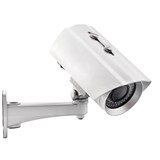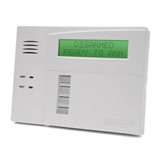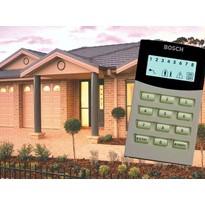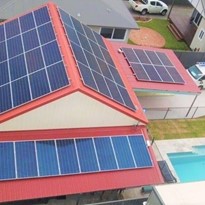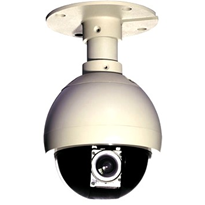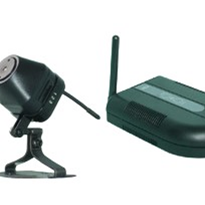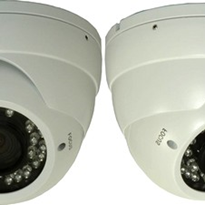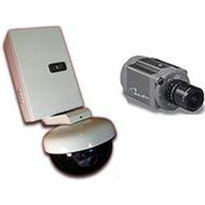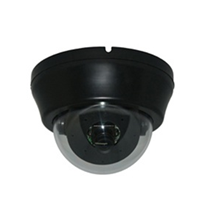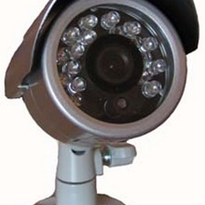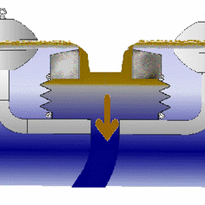Security cameras are a great deterrent and in the event of an intrusion a camera system can record the criminal activity. The evidence can then be used by the authorities to identify the offenders and convict them.
With the advancement of technology, security camera systems are now surprisingly simple to use, relatively easy to install, and have a number of options available in the way they are monitored.
The cameras can be connected to a digital video recorder (DVR) and television which means you can view the outside of your premises from within at the touch of a button via a viewing monitor. Modern systems can also provide real time remote viewing of your business from your smartphone or tablet while you are away.
Advantages of security cameras
One of the other major advantages of security cameras is that they capture and record criminal activity being carried out and the footage can be used to identify the perpetrators. Burglars usually look for soft targets and any business with a security camera system installed is anything but a soft target – it presents too high a risk for the criminals.
Simplicity and affordability are other advantages. Modern technology has reduced manufacturing costs significantly and camera systems can be found in all price ranges to suit almost any budget.
DIY security camera systems in particular are a great initiative and present fantastic value at a fraction of the price of installed customised systems. Many systems are suitable for both indoor and outdoor monitoring and most now also have cameras that will capture images in daylight and at night time if there is suitable lighting.
Initial setup and operation of many DIY systems can be relatively easy for a competent or handy individual.
Disadvantages of security cameras
Considering the financial, emotional and mental trauma associated with being the victim of a burglary it is difficult to come up with any real disadvantages of security cameras. However we will start with cost.
Whilst an "off the shelf" kit can be a very affordable option (starting at around $350.00) these types of kits won't always provide the protection you may want or need due to the limited number and types of cameras included.
For example, if you need one or more cameras to pick up clear long distance images, or if you need IR (Infrared) cameras that can see in total darkness where there is no lighting, then the cost will increase.
The more complicated a system needs to be, the more the price of additional cameras, installation and other requirements will push the cost up. However, the more vulnerable the property is, the more important it is to have it adequately protected.
There are privacy issues to consider also if, for example the range of your cameras go beyond the boundary of your business premises. In rare cases, invasion of privacy could result in problems – or even theoretically, a legal dispute – with those within close proximity.
System components, such as cameras and recorders, are subject to vandalism and theft if they are not hidden from view.
Types of security camera systems
Choosing a security camera system can be somewhat difficult with the large variety of products and differing technologies available. Compounding this even further is that the specifications for many camera systems all look much the same on paper.
Think about the process of choosing a new TV as an example. We all know the difference between a quality TV and a cheap TV – the picture just isn't the same regardless of the matching specs. The same applies to CCTV cameras.
The most common security camera technologies to choose from are Analogue, HD (High Definition) and IP (Internet Protocol).
Analogue systems
While analogue security cameras make ideal starter systems, the footage will be less clear than HD or IP and when compared side-by-side to the more advanced technologies. The images become almost fuzzy or blurred, making details like facial recognition and licence plate identification more difficult.
However, if your reasons for having a security camera system are more about deterring criminals and having proof of unlawful entry for insurance purposes, then an analogue system will be less expensive and will do the job nicely. A majority of businesses with CCTV currently use analogue.
HD (High Definition) Systems
Full HD (high definition) systems produce a very noticeable leap in picture quality, between three to five times better than analogue systems. They also boast many more advanced features including better remote viewing capabilities. And thanks to advances in technology these HD camera systems are a highly affordable alternative to the standard analogue systems.
If you want the best possible image to assist with positively identifying intruders and you are prepared to pay extra to have a superior system with advanced picture quality then you should look into the range of HD security camera systems available.
IP (Internet Protocol) Surveillance Cameras
Internet protocol cameras or IP cameras have their own processor, memory and image sensing capabilities. IP cameras can send and receive data via a computer network and the internet.
An advantage of IP surveillance cameras is that they have recording functionality built-in and can record directly to digital storage media, such as flash drives, hard disk drives or network attached storage. Additionally, IP cameras provide significantly greater resolution so the picture quality will also be far superior to analogue.
Wireless cameras
A wireless security camera sends a video signal through a transmitter, which is caught by a receiver and converted into video. The typical advantage of wireless cameras is their portability and flexibility which means the cameras can be easily moved or relocated.
However wireless cameras can be prone to interference causing the video signal to be unstable.
Because of their flexibility wireless cameras are often used for surveillance purposes.
Choosing the right security system is a major decision, and one that you don't want to get wrong. With the ever-growing popularity of security camera systems there is an ever-growing list of people jumping on the bandwagon to sell them. Make sure you are comparing apples-to-apples when looking at these systems, and also confirm the security experience level of the vendor.
It's best to consult a licensed security professional before deciding.



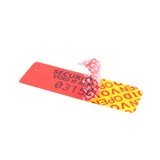
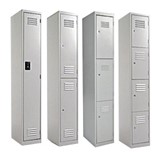
-160x160-state_article-rel-cat.png)
